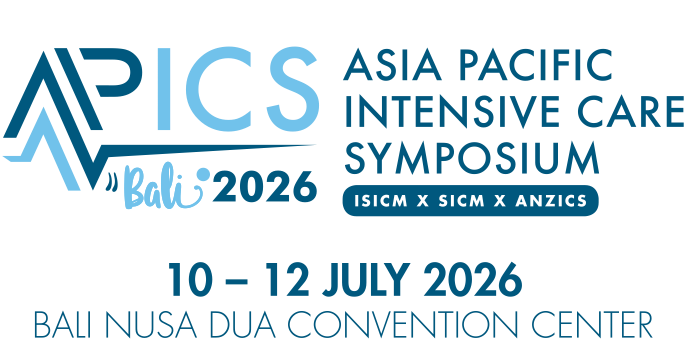Pre-Symposium Workshops
8 JULY 2026, WEDNESDAY
| Time | 0800 – 1700 (GMT+8) |
| Venue | Bali Nusa Dua Convention Center, Uluwatu 5 |
| Format | Interactive lectures/case-based discussions & small group breakout sessions with hands-on |
| Introduction | The Advanced Invasive Mechanical Ventilation Workshop is a full-day course designed for Advanced Trainees/Consultants and Senior Respiratory Therapists who manage patients with acute hypoxaemic respiratory failure in the Intensive Care Unit. |
| Objectives | The course will cover the following topics, via a combination of interactive lectures/case-based discussions and smaller group breakout sessions with hands-on:
1. Goals of mechanical ventilation
4. Managing the transition from controlled ventilation to spontaneous breathing, including:
5. Weaning/liberation from invasive mechanical ventilation |
| Target Participants | Advanced Trainees/Consultants and Senior Respiratory Therapists who routinely manage acute hypoxaemic respiratory failure in the ICU |
| Participants Number | 30 pax |
| Lead Faculty | Sim Wenyuan |
| Cost per pax | USD 200 |
| Registration | This workshop is available as an add-on to the Main Symposium. Click here to register. |
| Time | 0830 – 1700 (GMT+8) | ||
| Venue | Bali Nusa Dua Convention Center | ||
| Format | Interactive lectures/case-based discussions & small group breakout sessions with hands-on | ||
| Introduction | The Critical Care Ultrasound (Echo)(CCE) Workshop is a full-day course covering Level 1 focused cardiac ultrasound, haemodynamic measurements, and an introduction to basic transoesophageal echocardiography. This edition will also feature POCUS clip submissions for discussion, with attractive prizes to be won. | ||
| Objectives | The course will cover the following topics:
• Image acquisition for level 1 critical care echocardiography • Exposure to simple measurements for evaluating cardiac output, left and right heart dysfunction • Exposure to basic TEE • Case discussions using CCE |
||
| Target Participants | This course is open to physicians and nurses involved in the care of critically ill adults, including those with little or no prior experience in point-of-care ultrasound. Junior and senior physicians, nurses who wish to begin their CCE learning journey are welcome. For the hands-on practical stations, participants will be grouped according to their professional background. | ||
| Participants Number | 40 pax | ||
| Lead Faculty | Bastian Lubis
Chew Si Yuan Lau Yie Hui |
||
| Faculty | Adrian Wong
Arie Zainul Fathoni Peh Wee Ming Ruth Evelyn Sandra Hui Septian Adi Permana Tan Rou An Tan Joo Hor |
||
| Cost per pax | Participants may register for the CCE Workshop on 8 July or the Critical Care Ultrasound (General)(CCUS) Workshop on 9 July at USD 400 per day, or attend both workshops at a bundled rate of USD 600. | ||
| Registration | This workshop is available as an add-on to the Main Symposium. Click here to register. | ||
|
Time |
Agenda |
Duration |
Faculty |
|
0830 – 0845 |
Welcome and housekeeping |
15 mins |
Lau Yie Hui |
|
0845 – 0915 |
Lecture: Basics of cardiac ultrasound (physics, probe selection, orientation Standard TTE windows (PLAX, PSAX, apical, subcostal) |
30 mins |
Lau Yie Hui |
|
0915 – 0945 |
Introduction to resus TEE |
30 mins |
Bastian Lubis |
|
0945 – 1215 |
Morning rotations |
Adrian Wong Chew Si Yuan Lau Yie Hui Peh Wee Ming Ruth Evelyn Sandra Hui Septian Adi Permana Tan Rou An Tan Joo Hor TEE: Arie Zainul Fathoni Bastian Lubis |
|
|
0945 – 1015 |
Parasternal long and short |
30 mins |
|
|
1015 – 1045 |
Apical 4 |
30 mins |
|
|
1045 – 1100 |
Tea Break |
15 mins |
|
|
1100 – 1130 |
Subcostal and IVC |
30 mins |
|
|
1130 – 1200 |
2 parallel circuits – TEE |
30 mins |
|
|
1230 – 1300 |
Lunch |
60 mins |
– |
|
1300 – 1330 |
Lecture: Introduction to doppler and measurements |
30 mins |
Tan Joo Hor |
|
1330 – 1530 |
Hands-on Session |
Adrian Wong Chew Si Yuan Lau Yie Hui Peh Wee Ming Ruth Evelyn Sandra Hui Septian Adi Permana Tan Rou An Tan Joo Hor TEE: Arie Zainul Fathoni Bastian Lubis |
|
|
1330 – 1400 |
Focus on: LV assessment, CO, LVOT VTI+LVOT diameter |
30 mins |
|
|
1400 – 1430 |
Focus on: RV assessment (TAPSE, TR jet, PASP) |
30 mins |
|
|
1430 – 1445 |
Tea Break |
15 mins |
|
|
1445 – 1515 |
2 parallel circuits – TEE (focus on LV) |
30 mins |
|
|
1515 – 1545 |
2 parallel circuits – TEE (focus on RV) |
30 mins |
|
|
1545 – 1615 |
Case discussion: Approach to hypotension |
30 mins |
Septian Adi Permana |
|
1615 – 1645 |
POCUS Clips discussion |
30 mins |
Lau Yie Hui |
|
1645 – 1700 |
Q&A and feedback |
15 mins |
All Faculty |
8 – 9 JULY 2026, WEDNESDAY – THURSDAY
| Time | 0800 – 1700 (GMT+8) |
| Venue | Bali Nusa Dua Convention Center, Uluwatu 1 |
| Format | Interactive lectures (AM) & 4 – 6 group breakout sessions with hands-on (PM) |
| Introduction | A two-day Advanced Airway Course designed for senior trainees in Intensive Care, Respiratory Medicine, Anaesthesia, and Emergency Medicine. It also serves as a refresher for intensivists, anaesthetists, and emergency physicians. The programme includes lectures, small-group tutorials, case-based discussions, and hands-on skills stations. |
| Objectives | The course will cover the following topics:
|
| Target Participants | Senior trainees and Consultants in Intensive Care & Respiratory Medicine/Anaesthesia/Emergency Department |
| Participants Number | 36 pax |
| Lead Faculty | Amit Kansal |
| Faculty | Indonesia – Adhrie New Zealand – Ross Freebairn Australia – John Copland/Christian Karcher Singapore – Shanaz Matthew Sajeed/Amit Kansal |
| Cost per pax | APICS LMIC Delegate: USD 300 APICS Delegate: USD 600 |
| Registration | This workshop is available as an add-on to the Main Symposium. Click here to register. |
9 JULY 2026, THURSDAY
| Time | 0830 – 1700 (GMT+8) |
| Venue | Bali Nusa Dua Convention Center, Uluwatu 7 |
| Format | Interactive lectures/case-based discussions & small group breakout sessions with hands-on |
| Introduction | The Critical Care Ultrasound (General)(CCUS) Workshop is a full-day course on Critical Care Ultrasound (CCUS) comprising modules on Lung and Diaphragm Ultrasound, Lower Extremity DVT Point of Care Ultrasound (POCUS), Abdominal/FAST Ultrasound, Venous Excess Score (VEXUS), and Neuro POCUS for the critically ill adult. This course complements the 1-day course on Critical Care Echocardiography Workshop. |
| Objectives | The course will cover the following topics:
• Principles of Medical Ultrasound & Knobology • Ultrasound image acquisition protocols, interpretation and clinical correlation 1. Lung and Diaphragm: Identification of pleural sliding, A and B lines, consolidation, pneumothorax and pleural effusions, diaphragm thickening fraction and excursion 2. Lower Extremity DVT POCUS: Vascular sono-anatomy of the lower limb, B mode compression test for DVT, colour and pulse wave doppler 3. Abdominal and FAST: Identification of intra-abdominal free fluid, renal and bladder scanning for obstructive uropathy, and pocus for abdominal aorta 4. Venous Excess Score: IVC measurement, Doppler (hepatic vein, portal vein, renal vein) 5. Neuro POCUS: Optic Nerve Sheath Diameter, 2D Brain Sonography, Transcranial Doppler (Middle Cerebral Artery) |
| Target Participants | This course is open to all healthcare practitioners involved in the care of critically ill adults, including those with little or no prior experience in point-of-care ultrasound. Junior and senior physicians, nurses, and allied health professionals who wish to begin their CCUS learning journey are welcome. For the hands-on practical stations, participants will be grouped according to their professional background. |
| Participants Number | 40 – 50 pax |
| Lead Faculty | Bastian Lubis Chew Si Yuan Lau Yie Hui |
| Faculty | Adrian Wong
Arie Zainul Fathoni Bastian Lubis Lau Yie Hui Peh Wee Ming Ruth Evelyn Sandra Hui Septian Adi Permana Tan Rou An Tan Joo Hor |
| Cost per pax | Participants may register for the CCUS Workshop on 9 July or Critical Care Ultrasound (Echo)(CCE) Workshop on 8 July at USD400 per day, or attend both workshops at a bundled rate of USD600. |
| Registration | This workshop is available as an add-on to the Main Symposium. Click here to register. |
|
Time |
Agenda |
Duration |
Faculty |
|
0830 – 0845 |
Introduction to learning CCUS |
15 mins |
Chew Si Yuan |
|
0845 – 0915 |
Introduction to Ultrasound & Knobology (Lecture) |
30 mins |
Chew Si Yuan |
|
0915 – 0945 |
Lung and Diaphragm Ultrasound (Lecture) |
30 mins |
Chew Si Yuan |
|
0945 – 1025 |
Lung Ultrasound (Hands-on)
• Lung Ultrasound (20 mins) • Diaphragm Ultrasound (20 mins) |
40 mins |
All Faculty |
|
1025 – 1045 |
Tea break |
20 mins |
– |
|
1045 – 1115 |
Lower Extremity Vascular POCUS Lecture |
30 mins |
Tan Rou An |
|
1115 – 1145 |
Lower Extremity Vascular (Hands-on)
• US Lower Extremity Vascular Sono-anatomy • B-mode compression test • Colour and Pulse wave doppler (with venous augmentation) |
30 mins |
All Faculty |
|
1145 – 1215 |
Abdomen/FAST Ultrasound (Lecture) |
30 mins |
Peh Wee Ming |
|
1215 – 1300 |
Abdomen/FAST Ultrasound (Hands-on)
• Identification of intra-abdominal free fluid (FAST scan (20 mins) • Renal and bladder scan, Abdominal Aorta (20 mins) |
45 mins |
All Faculty |
|
1300 – 1400 |
Lunch Break |
60 mins |
– |
|
1400 – 1420 |
VEXUS (Lecture) |
20 mins |
Adrian Wong |
|
1420 – 1500 |
VEXUS (Hands-on)
• IVC measurement (Subcostal) (10mins) • Doppler interrogation of the Portal Vein and Hepatic vein, and renal vein (30 mins) |
40 mins |
All Faculty |
|
1500 – 1545 |
Neuro POCUS (Lecture) |
45 mins |
Adrian Wong |
|
1545 – 1645 |
Focused Cardiac Ultrasound (Hands-on)
• Optic Nerve Sheath Diameter (ONSD) measurement • 2D Brain Ultrasound • Trans-cranial doppler (Middle cerebral artery) |
60 mins |
All Faculty |
|
1645 – 1700 |
Closing remarks, Question and Answer, Feedback |
15 mins |
Chew Si Yuan |
*The programme is subject to change. Accurate at time of publishing.
| Time | 0830 – 1700 (GMT+8) |
| Venue | Bali Nusa Dua Convention Center, Uluwatu 6 |
| Format | Lectures and skill stations with breakout sessions (PM) |
| Introduction | The Critical Care Outreach workshop is a full-day programme focused on the establishment and operational aspects of a Rapid Response System (RRS). It covers the full hospital RRS chain, including activation, response, feedback, and administrative processes. The workshop is specifically designed to engage ICU practitioners involved in critical care outreach and rapid response services. |
| Objectives | The course will cover the following topics:
*Including skill station |
| Target Participants | Senior trainees and Consultants in Intensive Care & Respiratory Medicine/Anaesthesia/Emergency Department, and Critical Care Outreach (CCO) practitioners in Indonesia |
| Participants Number | 30 pax |
| Lead Faculty | Mayang Indah Lestari |
| Faculty | Christian Karcher Sidharta Kusuma Manggala |
| Cost per pax | USD 250 |
| Registration | This workshop is available as an add-on to the Main Symposium. Click here to register. |





